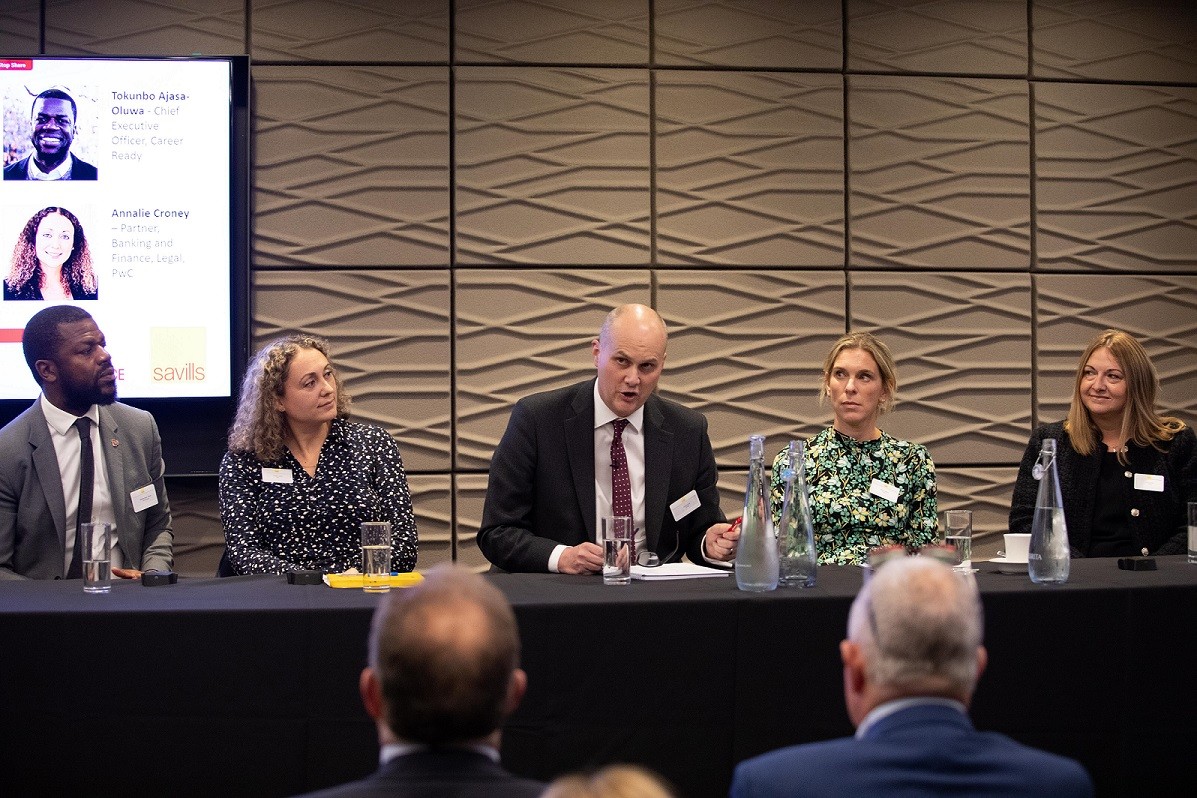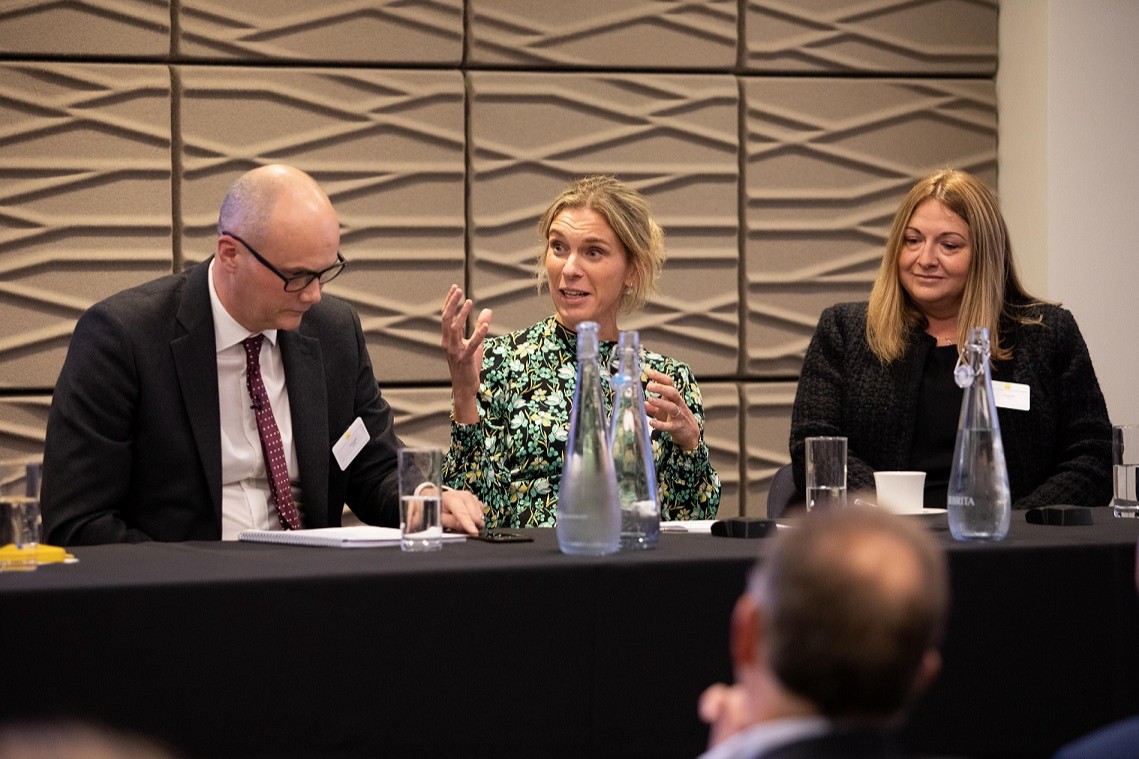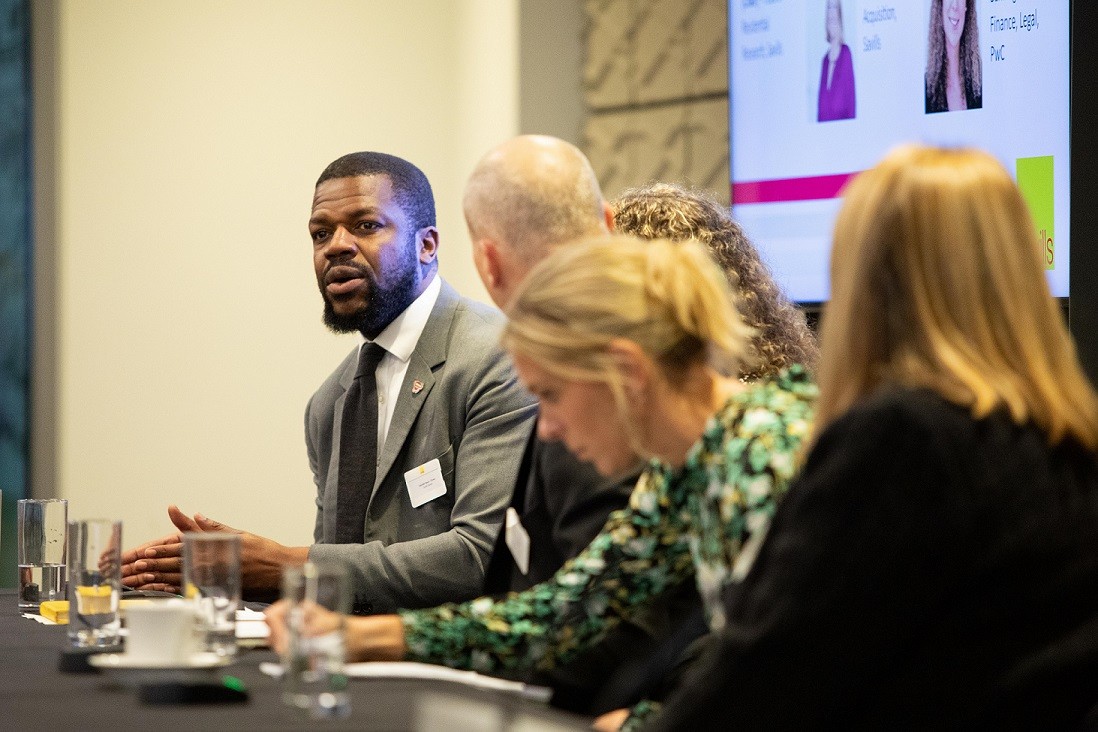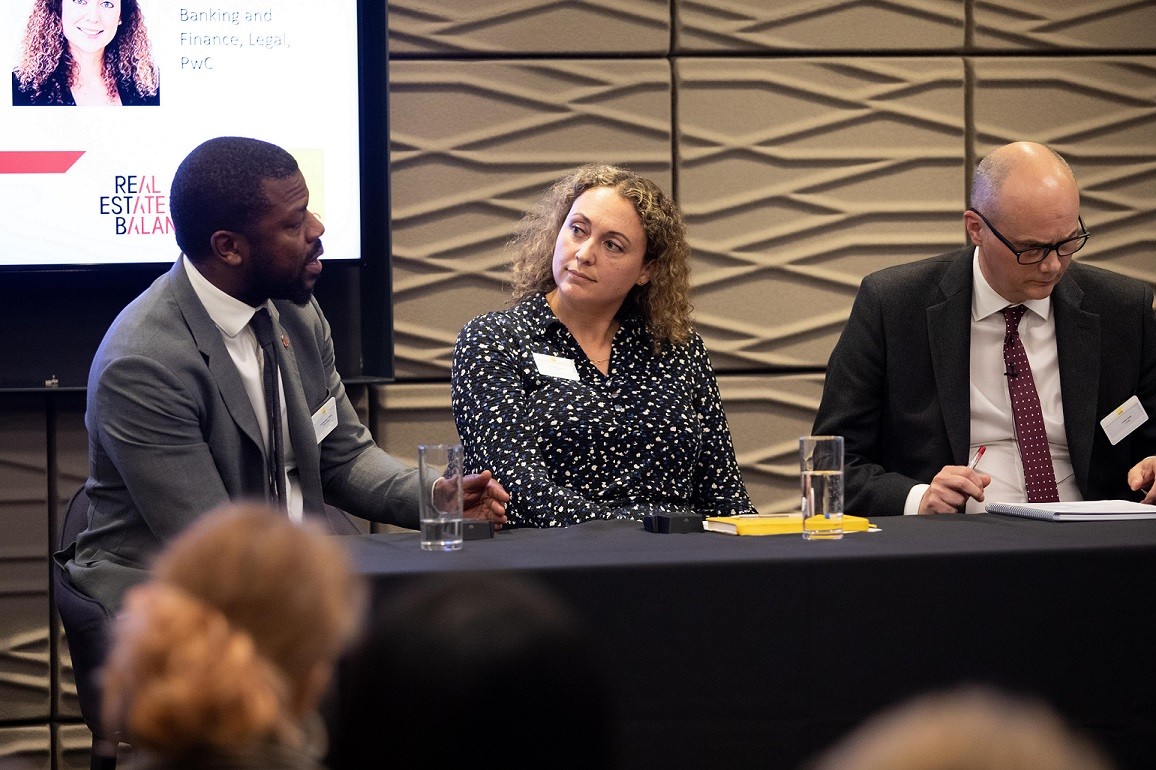By joining Real Estate Balance’s email list, you agree to receive email updates from time to time about organisation news, events being held and information about our partners in accordance with the terms outlined in our privacy notice, which you can read in full here.
Sign upUnlocking the opportunity of social mobility

Earlier in the year, Real Estate Balance asked participants in our EDI Industry Survey about their social background for the first time, with the findings suggesting that professionals in our industry are more privileged than the average for the UK population.
Working with Savills, we recently brought together the property professionals, below, in London to discuss the business case and moral responsibility for advancing social mobility in the workplace, how to attract a broad range of socioeconomic backgrounds and how we can provide them with the opportunities to maximise their career potential.
- Lucian Cook (Chair) - Head of Residential Research, Savills
- Tokunbo Ajasa-Oluwa - Chief Executive Officer, Career Ready
- Annalie Croney – Partner, Banking and Finance, Legal, PwC
- Jennie Colville- Head of ESG and Sustainability, Landsec
- Ema Saunders - Head of Talent Acquisition, Savills
Please click here to watch a short video of the event.
Tokunbo started the conversation by highlighting the business benefits of equality, diversity and inclusion (EDI), with significant pieces of recent research from the likes of McKinsey & Co and BlackRock linking enhanced performances with progressive workplace cultures and a diversity of representation, and he also raised the values of consumers becoming more important in individual decision making.
Annalie discussed the belief at PwC that the best way to deliver the optimum outcomes for clients is by having the most diverse range of people who can provide the most diverse range of solutions to client problems.
She added that PwC has voluntarily published its pay gap based on socioeconomic factors since 2021, with 95% of staff willing to disclose their background to the company.
Ema spoke about where real estate is on the journey towards social background equity compared with other sectors, saying that although it was broadly similar, there are had been a dial change in recent years.
We are not as representative as we would like to be yet, but I do think there is an understanding that it is specifically important for real estate to have that socioeconomic balance because as an industry we represent the whole country, and we have to have people who understand the backgrounds of the communities we are serving.
Ema Saunders
Jennie agreed, and added that although there are successful initiatives with a socioeconomic lens aimed at elevating people early in the careers, such as EG Future Leaders, the BPF equivalent and also within companies including her own, there is a lack of representation of less privileged social backgrounds at senior levels in real estate.
Tokunbo, through his work with companies at Career Ready, which brings education institutes and employers together to provide career opportunities for young people, and Annalie, speaking on successes at PwC, both advocated for the importance of organisations setting KPIs relating to social mobility at all levels and leaders establishing a clear vision of the values that everyone should work towards.

On the topic of attracting diverse socioeconomic talent to real estate, Ema suggested that the industry suffers from a lack of visibility, with many young people still thinking its opportunities started and ended at being an estate agent.
She added that teachers and parents could sometimes be biased against apprenticeships, and that they can also sometimes prioritise other high-profile areas of the economy for their pupils and children, such as law and accountancy.
Jennie said that the feedback Landsec had received from a recent ‘world of work’ initiative with 14-year-olds backed this up, with many saying they were not aware of the vast range of roles which make up the property industry.
Landsec Futures - the £20m fund that aims to deliver around £200m of social value by 2030 and help 30,000 people from underrepresented socioeconomic backgrounds gain long-term employment – provided a new and clear focus and purpose for the company’s community engagement and investment, she added.
Delivering these programmes can’t work without partners, and in each aspect we have linked up with an education partner and an employability charity partner to go out and do that outreach and go into schools to do those career talks and improve those employability skills. Don’t try to do it alone.
Jennie Colville

Tokunbo agreed that collaboration was vital for progressing social mobility.
He said that for the process to succeed, there needed to be schools which work closely with their local authorities, employers who have identified a place as an area of focus for them and resourced initiatives appropriately and for all involved to be brave enough to set ambitious targets.
Tokunbo added that a lot of resources were being wasted by companies not doing due diligence in terms of identifying existing organisations which could help them introduce initiatives relating to social mobility.
The panel also discussed how recruitment and interview practices could be biased against people from less privileged socioeconomic backgrounds.
We’ve had huge success in removing our 2:1 qualification requirement on our graduate scheme. We’ve seen no drop-off whatsoever in the quality of the graduates we take on and we take on around 2,000 per year. We had 70,000 more applications when we dropped the requirement and that’s people who would have previously been barred from accessing the opportunity.
Annalie Croney
Annalie also questioned the value of work experience at graduate level and Lucian made the point that in the past the quality of work experience an individual could get was based on their own personal connections.
Ema discussed how Savills now uses a contextual recruitment tool to determine how a candidate performs compared to their own peer group, which allows for people to be measured in their own context and also reveals a lot about an individual’s motivation, capability and work ethic.
This is coupled with education for people involved in the recruitment and selection processes to help them understand what the potential for talent can look like.
Jennie said it was important to de-bias recruitment processes rather than the recruiters.
She also highlighted requirements relating to diversity on shortlists and structured interviews rather than informal conversations, particularly at senior levels, as examples of inclusive recruitment practices.
Tokunbo said that he had seen a trend for employers beginning to provide interview questions in advance, especially as some people from less privileged socioeconomic backgrounds could be intimidated by a traditional interview process.
We’ve tried to develop that process as when we get to the shortlist and the end of the interview process, we now actively challenge each other, and the other thing we’ve learned is to interview in a different way for different candidates because we are genuinely trying to determine where a person’s talent lies and how good they are.
Lucian Cook

Annalie added ‘what would you do in this particular scenario faced with this particular issue’ is a fairer question than ‘how have you demonstrated this particular skill’ because it gives people who have not had a lot of work experience a broader possible set of answers.
She added that organisations should empower their people to be their true and authentic selves at work, and that representation of a range of socioeconomic backgrounds will ultimately be of benefit them.
Jennie echoed the importance of listening and understanding and creating a culture where everyone feels like they belong, and also that providing support for line managers, especially in the context of managing diverse talent, should not be overlooked.
Lucian expressed his belief in the importance of mentors who can guide and advise more junior colleagues and feel invested in the progression those people.
He also asked the panellists to offer one piece of advice for people at the beginning of their careers and navigating the world of work.
The suggestions included understanding individuality is a USP and has value and should be embraced; be brave, ask questions and practice a poker face; and find something in work that makes you happy and then do more of it.
The advice I would give is to be courageous around what is possible, and that goes for the employer as much as the employee, because many people from less privileged socioeconomic backgrounds are used to being confined in terms of what is possible for them.
Tokunbo Ajasa-Oluwa
The panellists also took questions from the audience, including how real estate can shed its associations with middle class pastimes like shooting and skiing and move away from team events centred around alcohol.
They all agreed that while there is a perception problem, the industry has changed for the better in recent years, and that as it has become more diverse, it has opened itself up to new ideas and more inclusive workplace practices and cultures.
The panellists also agreed that those in the industry with diverse characteristics or less privileged backgrounds have a responsibility to put themselves forward as role models.
We are thankful to Lucian, Tokunbo, Annalie, Ema and Jennie for sharing their insights in such a brilliant and thought-provoking discussion. We are also thankful to Alison Mennecier and Chanelle Gray at Savills for their support on this event and to everyone who attended and contributed to the conversation.